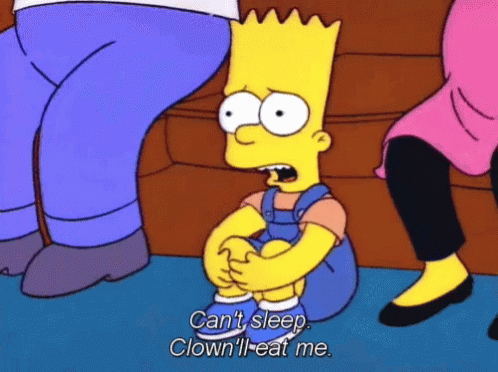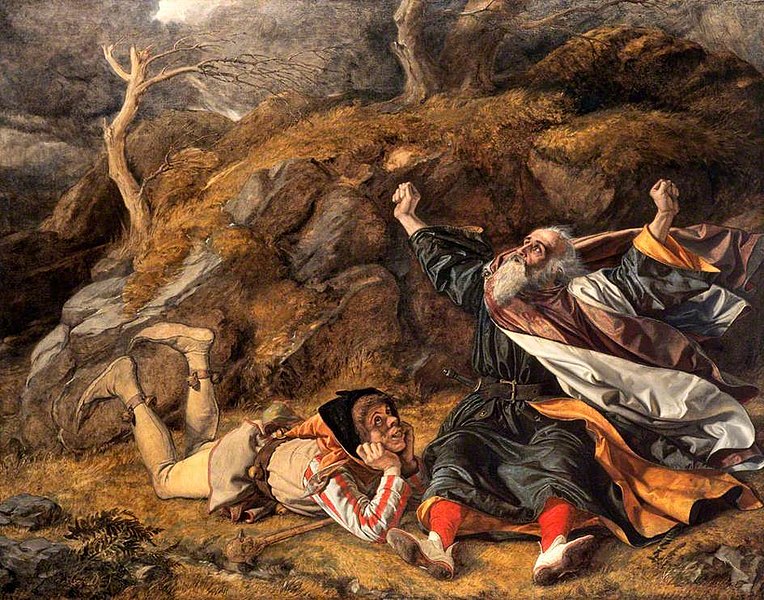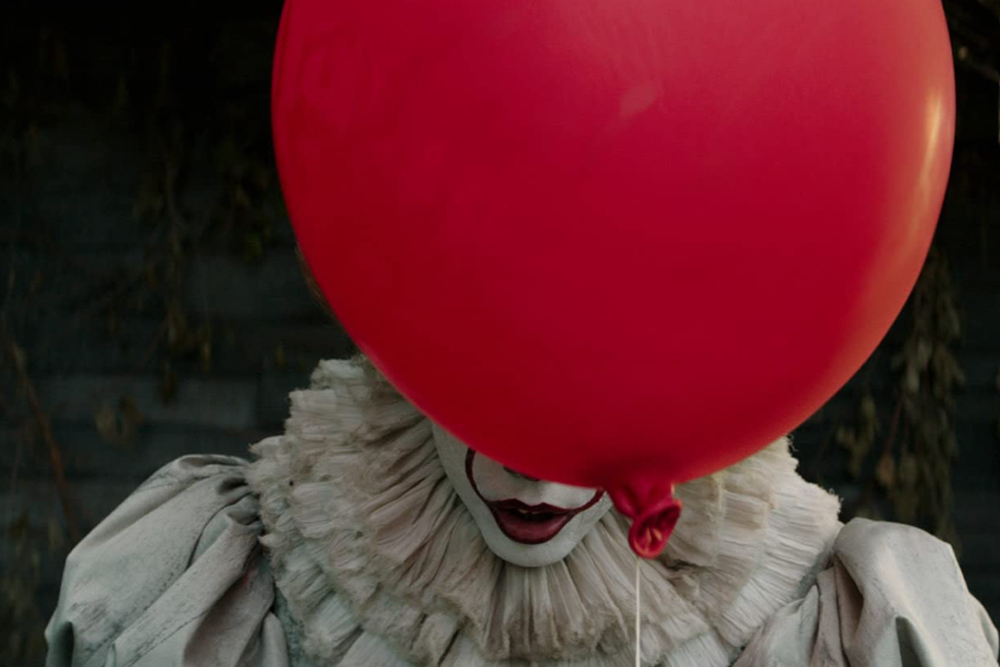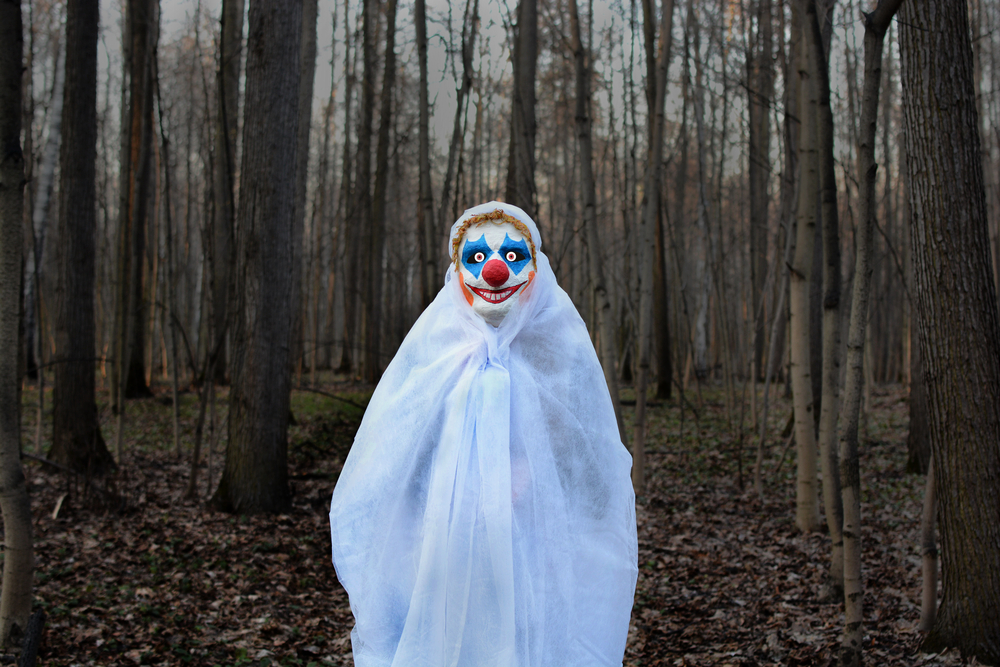Earlier research has revealed that coulrophobia – the extreme fear of clowns – is a common phenomenon. However, it remained unclear why some people are so scared of clowns. Could it be the dark history of clowns, their uncanny makeup or some other reasons? A new study finds the answer.
Have you been spooked by the scene where Pennywise lurks in the murky storm drain in the movie It Chapter Two? Or does the poster of the movie Poltergeist showing a tattered, smiling clown doll make you feel uneasy? You’re not alone. The sight of clowns puts a lot of people on edge.
The question is… when did clowns become so scary? By profession, they are supposed to be funny and sweet, and bring joy to children with their silly antiques at circuses, carnivals, and birthday parties. So what causes the relatively common fear of clowns?
Let’s find out!

Clowns Weren’t Created For Kids’ Entertainment
Clowns have been around for thousands of years, long before they were famed for making kids laugh. Some of the earliest clowns include pygmies from Africa employed by Egyptian pharaohs, and the Roman clown ‘stupidus’ (where the word “stupid” comes from!). Also, ancient Greece had bald-headed ‘buffoons’ in thickly padded clothes who would use profanity and throw nuts at the audience!
Clowns (often equated with ‘court jesters’) were the only people who could make fun of the king and get away with it. They would make no bones about their cruel pranks, jests, and crude jokes appropriate only for adults.
Even in Shakespeare’s plays (e.g., the gravediggers’ scene in Hamlet), a clown (or a ‘fool’) would often comment on dark subjects like death and human weaknesses (e.g., greed, hypocrisy). They would provide relief between tense or tragic scenes. Clowns also help to relieve the tension of viewers between dangerous and high-tension stunts in modern circuses.

Clearly, there has always been a dark or perverse element in the art of clowning itself. Still, their primary role was to entertain their audience.
So when exactly did clowns become scary child-devouring monsters, as we occasionally see in pop culture today?
Also Read: Why Do We Like Horror Movies?
Clowns In Movies And Media: ‘It’ Is No Laughing Matter
It was not until the 1950s that clowns became a staple for children’s entertainment. As TV entered the paradigm of entertainment, funny, silly and lovable clowns like Bozo the Clown and Ronald McDonald (McDonald’s ‘burger-happy’ clown mascot) became popular among kids.
However, things soon took a sharp turn. A disturbing case of serial killer John Wayne Gacy (a.k.a. Pogo the Clown) hit the headlines as a ‘killer clown’, which changed the way we look at clowns forever.
After a decade, in the 80s, ‘It,’ a novel written by Stephen King, gave birth to the scariest of scary clowns in fiction: Pennywise. Adding fuel to the flames, a creepy clown scare took place in 2016 across the USA and several other countries. Psychologists called it ‘a collective anxiety attack‘ or ‘mass hysteria’.
The clown scare mostly consisted of hoaxes and pranks, but the widespread fear it gave birth to was very real.

Movie-makers, as always, found chilling ways to exploit this fear. Movies like It, Terrifier and Poltergeist, in turn, frightened and scarred viewers of all ages. Clowns lost their innocent, friendly image and became the stuff of nightmares.
Now, how real is the fear of clowns? A 2016 poll by Vox revealed that Americans are more scared of clowns than of a possible terrorist attack or even death.
The question remains, do we dislike clowns because of negative news and horror movies? Or is there something inherently creepy about them?
Also Read: Why Is Joker The Most Liked Villain?
Exploring The Psychology Behind The Fear Of Clowns
I don’t consider myself to be afraid of clowns. But I wouldn’t want to be trapped in an elevator with one either. There’s something very unsettling about the outrageously bright costumes, the face paint, bulging eyes and a mouth carved into an uncomfortably wide smile.
However, there’s a difference between being slightly uncomfortable around clowns and suffering from an excessive fear of them.
Some people do have an intense fear of clowns, known as coulrophobia. Being stuck in an elevator with clowns may easily trigger a fear response (the “fight or flight” response), activating the amygdala and making them feel scared.
Those who are affected by coulrophobia, the phobia of clowns, may sweat heavily, experience an increase in heart rate, and even feel nauseous when they see a clown—or even just think about clowns! It’s the kind of fear where you know your feelings are irrational, but you can’t do anything to control them.

Coulrophobia is still not officially considered to be a mental health condition. There is also a lot about this phenomenon that existing research fails to answer.
However, a new research study proposes the psychological reasons behind this fear.
Scientists Uncover The Real Reasons Behind Coulrophobia
In a new study that appeared this year in the journal Frontiers in Psychology, scientists conducted a survey of nearly 1,000 people of different ages from around the globe.
Believe it or not, more than half of the participants said they had some degree of coulrophobia. But what were the reasons surrounding clowns that struck fear in the hearts of those respondents?
Confirming our previous understanding, the study shows that the makeup of clowns tops the list of reasons why people dislike or fear clowns. The makeup hides their emotional signals, so we can’t figure out their true intentions. Our brain reads them as humans, but also signals that something might be off about them, an experience linked to Uncanny Valley theory.
The study further adds that the color of the makeup (e.g., blood-red distorted facial features) reminds us of wounds, diseases or death, leading to a sense of unease, creepiness and even disgust.
Another factor that was highly rated by survey respondents was the behavior of clowns, which is pretty unpredictable. You never know what their next bit of mischief might be. Are they going to sing a song or throw a bucket of confetti at you? This sense of uncertainty can make us feel uncomfortable.
Some respondents in the survey also said they acquired coulrophobia from family members, while some picked it up from movies and popular culture. Only a small number of them cited having an actual “scary personal experience with a clown.”
A Final Word
The clowning profession, like any other artistic pursuit, is not easy. Keeping a dying art alive makes the work even harder.
On top of all that, the negative portrayal in TV, movies and social media is not making it any easier on professional clowns who toil every day with little appreciation and growing hostility against them. As weird as it sounds, there’s a whole online community called ‘I Hate Clowns’.
A possible solution to this social panic and distrust is to nurture a scientific mindset by keeping our ears, eyes and mind open. This will help people from all walks of life treat each other equally and fairly, even those with water-squirting flowers on their lapels!
How well do you understand the article above!

References (click to expand)
- Fear of clowns: An investigation into the aetiology .... Frontiers Media SA
- Tyson, P. J., Davies, S. K., Scorey, S., & Greville, W. J. (2022, March 14). Fear of clowns: An investigation into the prevalence of coulrophobia in an international sample. International Journal of Mental Health. Informa UK Limited.
- The Great Clown Scare of 2016. Psychology Today
- Americans Say They're More Afraid of Clowns Than .... ScienceAlert
